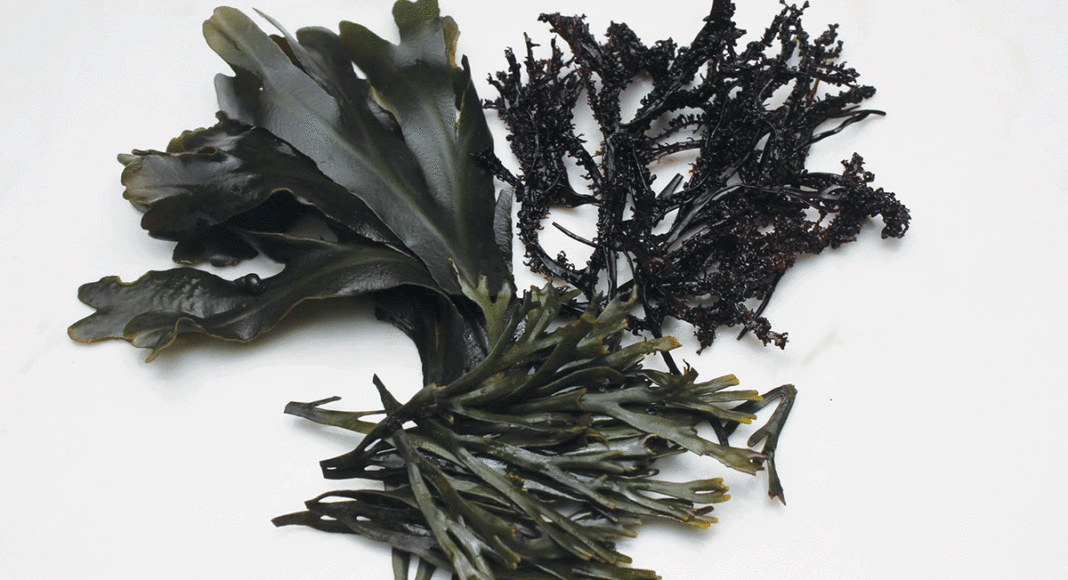Soif Restaurant & Wine Bar and UCSC’s Coastal Science and Policy Program will unveil a new dinner and discussion series, “Sustainable Coastal Communities: Challenges and Opportunities,” on Tuesday, March 26, at 7 p.m.
“I am hoping to bring the challenges of climate change directly to our dinner plates,” says Soif owner Patrice Boyle, who began thinking about the possibilities when she first met Anne Kapuscinski, a former Dartmouth professor brought on to direct the new UCSC program. Kapuscinski and Boyle, along with colleague Mark Carr, began brainstorming about a dinner program that would spotlight coastal ecosystems. “I am very excited about this series, and especially about the new Coastal Science and Policy Program at UCSC,” Boyle says. “The basic format will be to have one of the scientists lay out the global issues and challenges.”
A selected supplier will also present specific strategies and solutions. “Our first partner will be the Ocean2Table founders, Charlie Lambert and Ian Cole,” Boyle reveals. The March 26 debut dinner will focus on fisheries, with biologist John Field of UCSC’s Southwest Fisheries Science Center on hand to lead the discussion along with the Ocean2Table team. “We’re excited for the upcoming event,” the Ocean2Table entrepreneurs told me. “It should be a great opportunity to showcase some of the catch coming into our local ports and explain what differentiates it from what is typically available in local markets.”
A local grower will be featured at the next dinner in June, and the third dinner in September will highlight ranching. In December, the focus will turn to aquaculture, ideally showcasing Kapuscinski’s closed-system fish farm in progress at UCSC. At all of the events, Boyle says, “Our chef Tom McNary will create a menu representative of that evening’s theme highlighting local sustainable foods.”
At the inaugural dinner in March, the duo behind Ocean2Table plan to give a brief overview of how the current global seafood supply chain works, Cole says. A quick primer: most of the seafood consumed in the US is imported, and two species widely used in our kitchens are farmed salmon and farmed shrimp. “Most farmed fish has a bad rap—for good reasons,” Cole says. “They are fed a diet that contains antibiotics, as well as fishmeal produced from wild fish stocks. The practice of catching wild fish to feed farmed fish is inefficient and unsustainable. Fish farming practices degrade wild habitat, and during storm events it is not uncommon for large numbers of farmed salmon to escape and breed with the wild population.”
He also revealed one variety of “rampant seafood fraud” that makes it difficult for consumers to make smart choices. “As much as 40 percent of the seafood in the U.S. is mislabelled,” Cole says. “The longer the supply chain, the more likely the fish you’re eating is not what it claims to be.” Which is why Cole and his partner are building a “transparent and traceable” local fishery.
That’s lots of food for thought at Soif’s new dinner series, a delicious town/gown partnership bringing guests together to better understand the unique pressures on our coastal ecosystems. Boyle is once again setting the pace. “I am thrilled to bring together some of the top researchers and thought leaders from the UCSC team,” Boyle says. “We’ll see how this goes, but I would love to make it a permanent program and a regular public lecture series.”
Sustainable Coastal Communities dinners at Soif will cost $100 per person, plus $50 for wine pairings. To reserve your space for the Tuesday, March 26, dinner at 7:00 p.m., call Soif at 423-2020, soifwine.com. Details and dates for subsequent dinners highlighting farming, ranching and salmon to be announced soon.













